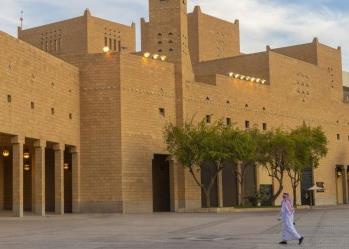
Bechtel chief says lower oil prices have changed the rate of return on projects
- Clients want lower prices from contractors
- Construction costs have not yet fallen
- Oil prices began to fall in July 2014
The construction market is out of equilibrium as lower oil prices change the rate of return on major projects, says Bechtels Europe, Africa, and Middle East president David Welch.
Investors take a look at these large investments and they say the oil price has to improve or the contractors prices have to come down for the IRR [internal rate of return] to come back to the neighbourhood that we would like it to be in, he says.
The reality is oil prices are probably not going back to levels seen last summer for some time, and at the same time we dont get see a flow through to the costs of our inputs that will result in a better bargain from the customers eyes from the contractors.
The fall in oil prices has rocked the economies of the major oil-producing nations, including key markets in the GCC such as Saudi Arabia, Kuwait, Qatar and the UAE. Prices fell from $115 a barrel in July 2014 to a low of $46 a barrel in mid-January this year.
[The fall in oil prices] is a story that is still being formed, says Welch. We do not know what the price points are for tight oil and shale, and we dont know whether we can generalise in an objective way about the impact of lower revenues in the major oil producing states.
Bechtel, like other contractors working in the region, is expecting the fall in prices to affect its business as plans for future projects are delayed. When we look at our business it is inevitably the case that we will see some impact, says Welch. Less so in infrastructure spending, particularly in areas that involve social services, and less in projects under way, although I cant dismiss there may be some effect there in some markets.
The most exposed sector to falling oil prices is oil field services. Of course probably most acutely [the impact will be] for the oil services companies and I think in the background all the national oil companies and international oil companies will rationalise capital expenditure and investment programmes, says Welch.
Bechtel is aware first hand of the move to rationalise spending plans. In September last year the partners behind the Al-Sejeel petrochemicals complex in Qatar decided to put on hold the $7.4bn scheme that Bechtel was working on as project manager.
[Sejeel] was paused in September and several months later they also paused the Karaana project that they had in JV [joint venture] with Shell. Clearly, in Qatars case, it is taking a look at what they want to do in the downstream arena and it has made a decision to hold those for foreseeable future while they concentrate on other things, says Welch. That is a pattern of analysis and decision making that will pertain elsewhere as governments look at all of their public expenditures and the oil companies look at the rate of return on projects.
With fewer new projects moving forward the opportunities for work are diminishing, and Bechtel, like other contractors in the region is looking for new work. We are all looking at order book aggressively, we want to do smart projects, so it is not a promiscuous look at the market where we will rush out and take anything we can get. Bechtel has never been about that, says Welch.
While lower oil prices may be a problem for the oil exporters in the GCC, in other countries lower energy bills could be a boost to the economy. A country like Egypt will benefit from lower oil prices. It used to be an oil and gas exporter, but less so today and such an energy-intensive economy, then their energy bills will be lower and that helps the economic reform programme and attracts investors that are looking for opportunities, says Welch.
You might also like...

Oman secures 1.5GW contract renewals
08 May 2024

Oman extends 1GW wind prequalification
08 May 2024
A MEED Subscription...
Subscribe or upgrade your current MEED.com package to support your strategic planning with the MENA region’s best source of business information. Proceed to our online shop below to find out more about the features in each package.










